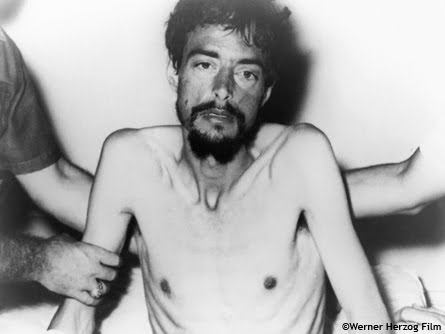
Most documentaries strive for impartiality, and there are varying theories on the best way to achieve an "accurate" depiction of reality. Though some films claim a higher degree of objectivity than others, it is an impossible game to play, for documentaries are inherently subjective as a result of the presence of the filmmaker. Joe Berlinger and Bruce Sinosky's film Brother's Keeper manages to tread the line of partiality just about as well as I have seen done in a documentary, really freeing the viewer to make their own opinions about the events of the film.
Brother's Keeper is set in rural New York and follows Adelbert Ward and his two brothers Roscoe and Lyman as they get tangled up in a media frenzy when Adelbert is charged with killing the fourth Ward brother, William. We meet the Wards as the accused brother awaits trial and the film follows them all the way through the verdict.
The filmmakers don't take the verité approach and pretend that they aren't making a movie; we hear their voices directly address their subject, even going as far as to ask Adelaide what his thoughts are about their making of this documentary. The film and its players speak very candidly about the circumstances surrounding William's death, the sordid details of which may have been omitted by others who might have made the same film as a defense for Adelaide. It is hard not to root for our hapless protagonist though, after all the Brother's Keeper is about him, but the film's evenhanded approach keeps us from ever really feeling comfortable picking sides. A good way to examine Brother's Keeper is against the mainstream media's coverage of the Ward case. In the film, none other than Connie Chung devotes a profile story to the Wards, depicting them outright as primitive, backwards and operating on a different value set than that employed by society. The nightly news tells you what to think about these men, defining their circumstances as indicative of their rural lifestyle, while the film allows the opportunity to facilitate some kind of understanding, allowing the Wards and their community's warmth to shine through. It is a warmth tempered by the law enforcement element of the case, who are depicted neither as righteous nor inept, juts simply as the opposing side to Adelaide (though a recurrent theme in the interviews with the townsfolk is that they represent Urbania's attack on rural America). Brother's Keeper is fraught with quirk and charm unique to a documentary about something as macabre as murder trial; another dichotomy expertly balanced by the filmmakers. B+
Other Semi-related Thoughts:
-For some good docs that play with the idea of partiality and the nature of documentary filmmaking, check out F for Fake or The Gleaners and I.
-I mean I know its different out there, but please can you not grow a beard thats a spit trap for your chew tobacco. As someone with a beard, this really bothered me more than anything else.




No comments:
Post a Comment